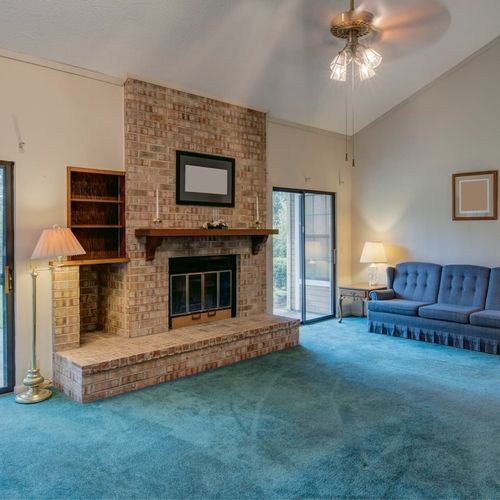Key takeaways
Selling a home with tenants in place is less about marketing and more about strategy and risk management—tenant rights, lease terms, and cooperation can materially affect price, timing, and buyer pool.
In California, buyers discount uncertainty. Limited access, restricted showings, or unclear tenancy terms often lead to lower offers or a smaller pool of investor buyers, even when the underlying property is strong.
The biggest risk isn’t that a tenant occupies the home—it’s selling without a plan. Early coordination (legal guidance, tenant communication, and pricing strategy) can preserve value and avoid costly delays or forced concessions.
Summary: Homes with tenants can sell successfully—but only when tenant rights, buyer expectations, and timing are managed upfront, so planning matters more than speed.
If you are considering selling a property that you’ve been using a rental property, there are a lot of questions that you will need to ask yourself, your realtor, and any other number of people. However, one of the most commonly asked questions that I’ve received is about whether or not you should have a rental property vacated before you list it for sale.
Sellers are often torn about whether or not to have tenants out of the way before they try to sell a property. After all, if the property takes some time to sell, you’re going to be missing out on the income that the property has been generating for you. However, if you leave tenants in place, you run the risk of hurting the likelihood that your property receives a good offer.
In most cases, I encourage clients to have properties vacated. However, there are some exceptions to that rule. There are two main questions that you will need to ask before deciding whether or not to evict your renters before selling your property. First of all, what type of property is it? Secondly, is the person who is purchasing the property likely to live in any part of it? Understanding different property types is key to making the right decision about what to do with your renters.
Selling a Tenant-Occupied Home in Silicon Valley
Many Silicon Valley homeowners also have a rental property (a second home or an investment condo). Maybe you’ve kept a home as a rental but now plan to sell. Selling a tenant-occupied property is a special challenge in California and the Bay Area. Unlike selling your own home, you’re dealing with someone else’s rights and schedules.
California law protects tenants: you generally must give 24-hour notice for showings, and tenants can’t be forced out until their lease ends (with some state rules allowing 60 days’ notice if a buyer intends to occupy). In practice, this often means:
- Limited Showings: Tenants may be less cooperative. Even a courteous tenant might not want daily showings or open houses disrupting their life. If you can only show one day a week, it dramatically lengthens the sale.
- Fewer Buyers: Many homebuyers want to move in themselves and will not purchase a property with a lease in place. This cuts your audience mostly to investors or landlords looking for a turnkey rental. Unfortunately, investor buyers typically offer lower prices (see below).
- Higher Risk of Sale Falling Through: Tenants add unpredictability. If a tenant delays or refuses entry for inspections, the deal can unravel. One REALTOR®’s analysis found that tenant-occupied homes in Portland had a ~40% failure rate (deal canceled) , far higher than ~17–22% for vacant or owner-occupied homes. In that study, 37% of tenant listings never sold (vs. 17% for vacant). While not Bay Area data, it underscores the risk: your tenant listing might languish or collapse more often than a vacant one.
- Complex Contracts: You’ll need to disclose tenant rights, and buyers will often write clauses about tenants staying. This can complicate financing (some lenders won’t lend on occupied property) and closing schedules.
- Tenant Retention or Buyouts: You might have to negotiate with your tenant to leave early (sometimes offering a cash relocation bonus), which is an added expense and hassle. Or you accept the sale with the tenant in place, which usually means selling as an investment with a loan assumption or all-cash buyer.
Despite these challenges, selling a tenant-occupied home has a few pros:
- Guaranteed Income Until Closing: You’ll still collect rent while the house is on market. This can make carrying two mortgages easier.
- Attracting Investors: Some buyers want a tenant. House hackers (someone who plans to live in one unit and rent the other) or long-distance investors may see it as a convenience that income is locked in. In areas with extremely low rental vacancy (like parts of the Bay Area), a guaranteed tenant can even be a selling point.
- Minimal Preparation: A tenant-occupied home often means minimal pre-sale renovations (the tenant lives in it). You can still press upon the tenants the need for tidiness and perhaps do a touch-up paint and landlord repairs, but you won’t have an empty shell to transform.
Apartment Complexes
Obviously, apartment complexes are their own animal in the world of real estate. There aren’t a lot of apartment complexes, which means there aren’t a lot of owners. However, if you have an apartment complex in your portfolio and you want to resell it, you may be wondering what you need to do with your tenants.
This is one of the rare cases where you should try to ensure that as many of the units are occupied. The person who is going to purchase your apartment complex is most likely looking for his or her own investment opportunity. While there is a chance that the buyer may decide to occupy one of the units, the most important thing that they’re looking at is the monthly revenue generated.
Potential buyers will thoroughly review your financial records of the apartment complex. They also don’t want to deal with the hassle of finding tenants for every unit. If you own an apartment complex and you want to sell the building, you’re better served by having as many units as possible filled.
Duplexes, Triplexes, and Fourplexes
There are a lot of duplexes, triplexes, and fourplexes in the Bay Area. Obviously, these facilities are smaller than apartment complexes. Additionally, you may be living in one of the units yourself, as many of the owners of these facilities use one unit for a personal residence.
The decision to leave tenants in place or remove them will largely depend on what the new owner plans to do with the space and the location. If your duplex, triplex, or fourplex is near a highway, an airport, or another noisy area, there’s a good chance that the buyer won’t want to live in it. Instead, he or she is probably looking for a space that they can fill with renters. Conversely, if you own one of these complexes in a quiet residential neighborhood, the buyer may want to live in one of the spaces.
Much like apartment complexes, buyers who want to rent the space out in its entirety want to have tenants in place. However, if you’ve been charging less than market prices for rent, they may want to start with a clean slate. This obviously puts a lot of variables in place, so you will need to consider the details of your particular property.
If tenants plan on living in one of the spaces, you’re better served by having the space empty. Tenants will leave clutter lying around and will probably sensationalize any issues with the property. Remember, if you sell the property, they know that they are either going to start paying more rent, or they’re going to need to find a new place to live. These tenants, who have to have 24 hours’ notice before you and a prospective buyer come to view the space, will make it harder for you to sell the property than it would be without them. With that in mind, those tenants won’t help you sell your property to someone else.
Single Family Homes
Finally, the most common type of rental property is a single-family home. I always encourage my clients to have tenants out of the property before listing it. This serves a variety of purposes. First of all, does the buyer plan on living in the property or using it as an income-generating property. If they’re going to live there, they want to see the home unoccupied, staged, and ready to live in. If they’re buying the property as a rental, the same issues that we discussed with duplexes, triplexes, and fourplexes apply.
Your buyer won’t have a hard time finding a renter for a single-family home. Additionally, he or she probably doesn’t want to be limited by the rent that you have been charging your tenants. Having tenants in a single-family home when trying to sell the property will make things exponentially harder than they need to be.
Should you have your renters out of the property before you try to sell it? There are simply too many variables to just provide a yes or no answer to that question. In some cases, such as selling an apartment complex, having renters in place conveys the fact that the property is ready to generate income for its new owner. However, in other cases, those tenants can serve as a major deterrent to any potential buyers. Spend some time thinking about the property from a buyer’s perspective and make an informed decision about what you should do with your property.
Tips when Selling a Home Occupied by Tenants in Silicon Valley
In practice, if you’re selling a rental home that’s tenant-occupied, consider these approaches:
- Wait it Out If You Can: If the lease is only a few months away from expiring, it often makes sense to wait and sell it vacant. You’ll get far more buyers and likely a better price. It may cost a month or two of rent, but the payoff in sale price can be larger.
- Offer the Tenant Incentives: Some owners offer tenants a “lease buyout” – cash for early move-out. This costs money but can greatly speed up the sale. In high-demand markets, tenants might be willing to leave sooner for the right price.
- Price Accordingly: If you must sell with a tenant, price it accordingly. Work with an agent who can advise on how much of a concession investors expect. Sometimes pricing it slightly below market (to attract investors faster) is better than sitting long.
- Market to Investors: List on MLS and also directly to local investor channels. Highlight the lease terms and income in your marketing. For example: “Property currently leased at $X/month with lease through [date] – perfect for an investor!”
- Compliance and Goodwill: Follow all local rent-control and tenant-notice laws (in the Bay Area, these can be strict). The smoother the transition for the tenant, the fewer problems come up. Buyers will check that you’re legally compliant (if you’re not, it can derail deals).
- Consider an Off-Market Sale: If a direct MLS sale stalls, you might try selling off-market to an investor who you can directly pitch the idea to (often for a slightly lower price). This avoids open-house disruptions but usually nets the least money.
Bottom line: A tenant-occupied sale is almost never better than selling vacant or owner-occupied in terms of price or speed. The only exception is if you specifically want an investor buyer (for example, to close fast or because you already have an offer lined up). But for most homeowners who want top dollar, it’s worth clearing out tenants first if possible.
Frequently Asked Questions
Can I sell a home in Silicon Valley with tenants still living in it?
Yes. You can sell with tenants in place, but it changes the process because you’re selling a home that comes with tenant rights, lease terms, and access constraints—so your buyer pool, timeline, and price can all be affected.
Do tenants have to move out before I list the property?
Not necessarily. In many cases, selling vacant produces a higher price and more buyer demand, but there are exceptions (especially if the ideal buyer is an investor who wants rent in place). The best choice depends on the property type and whether the likely buyer plans to occupy it.
What notice do I have to give tenants for showings?
In California, showings generally require advance notice (commonly 24 hours). Even with proper notice, limited availability (for example, only allowing showings one day per week) can slow the sale and reduce buyer urgency.
Will having tenants in place reduce my sale price?
Often, yes—because many owner-occupant buyers won’t buy a home with a lease in place, which shrinks your audience primarily to investors. Investor buyers typically expect a discount to compensate for risk, limited access, and rent constraints.
Why do tenant-occupied sales have a higher risk of falling apart?
Tenants add unpredictability: access can be delayed for inspections, appraisals, or repairs; cooperation can vary; and financing/logistics can get more complicated when occupancy and lease terms are involved. Those friction points can increase the chance a deal stalls or cancels.
Does the best strategy change by property type?
Yes. For apartment buildings, buyers usually care most about income and occupancy—having units rented can help. For duplex/triplex/fourplex properties, it depends on location and whether the buyer likely wants to live in a unit. For single-family homes, selling vacant is usually the cleanest path because most buyers want to move in.
Should I wait until the lease ends to sell?
If the lease is close to expiring, waiting can be worth it: you may lose a month or two of rent, but you’ll likely gain more buyers and a stronger price by selling vacant. This is often one of the highest-leverage decisions a landlord-seller can make.
Can I pay tenants to move out early?
Sometimes. Many sellers use a “lease buyout” (cash-for-keys style incentive) to accelerate a vacancy timeline. It costs money, but it can reduce uncertainty, widen the buyer pool, and improve the final sales outcome if priced and handled correctly.
If I must sell with tenants, how should I price the home?
Price it with the buyer pool in mind. If you’re mostly targeting investors, pricing slightly below vacant “retail” value can attract faster, cleaner offers rather than sitting on market and negotiating from weakness later.
How should I market a tenant-occupied property?
Market to investors directly and on MLS, and make the income/lease terms easy to evaluate: rent amount, lease end date, and any key terms. The goal is to reduce uncertainty and make the property “underwriteable” for an investor buyer.
What’s the most important thing to do to avoid legal or closing problems?
Stay compliant and keep goodwill. Follow tenant-notice rules, rent-control rules (where applicable), and document everything clearly for buyers. Buyers will scrutinize compliance—and if anything looks messy, it can derail financing or negotiations.
When does an off-market sale make sense?
If a tenant-occupied listing struggles on MLS, an off-market investor sale can reduce disruption (fewer showings) and shorten the process. The tradeoff is usually a lower net price compared with a well-executed vacant or retail sale.
Check out these Great Homes for Multi-Generational Living
2
3
4
5
6
7
8
9
10
11
12
13
14
15
16
17
18
19
20
21
22
23
24
25




